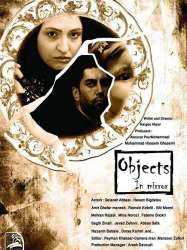Films from the country "iran", sorted by revenue
 , 1h30
, 1h30Origin Iran
Genres Drama
Actors Yekta Naser
Yasaman has been living with her mother Leila since birth. Leila has never let her see her father. When Yasaman gets brain death in an accident, Leila has one week time to get consent from her ex-husband for a vital issue.

A Separation (2011)
, 1h54Directed by Asghar Farhadi
Origin Iran
Genres Drama
Themes Pregnancy films, Medical-themed films, Films about sexuality, Films about psychiatry, Films about disabilities
Actors Leila Hatami, Peymân Maâdi, Shahab Hosseini, Merila Zarei, Sareh Bayat, Sarina Farhadi
Nader and Simin have been married for 14 years and live with their 11-year-old daughter Termeh in Tehran. The family belongs to the urban middle-class and the couple is on the verge of separation. Simin wants to leave the country with her husband and daughter, as she does not want Termeh to grow up under the prevailing conditions. This desire is not shared by Nader. He is concerned for his elderly father, who lives with the family and suffers from Alzheimer's disease. When Nader decides to stay in Iran, Simin files for divorce.
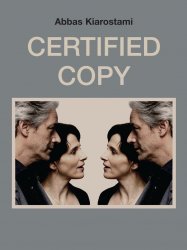
Certified Copy (2010)
, 1h46Directed by Abbas Kiarostami
Origin Iran
Genres Drama, Romance
Actors Juliette Binoche, William Shimell, Jean-Claude Carrière, Agathe Natanson, Angelo Barbagallo
After the opening scenes, the film portrays an afternoon of two people spending time together getting to know each other, and emotions run the gamut of possibilities.

The Kingdom of Solomon (2010)
, 1h50Directed by Shahriar Bahrani
Origin Iran
Genres Drama, War, Action, Historical
Themes Films about religion, Films based on the Bible, Films about Jews and Judaism, Films about Islam
Actors Amin Zendegani, Elham Hamidi, Mahmoud Pak Niat
Solomon is a wise prophet selected as the crown prince by his father King David (Dawud in Islamic texts) when he was 9. Following Prophet David's death, Solomon succeeds to the crown and God appoints him as a prophet. Requesting from God the establishment of a divine kingdom, Solomon takes the wind under his command and jinns and demons under his control. Inviting rulers of the neighbouring lands to the monotheistic religion, Prophet Solomon continues his divine mission in as much as Balqis, the Queen of Sheba professes monotheism. At the end, while leaning on his cane, Solomon bids farewell to the world, and the jinns and demons get out of reign and return to their own world.
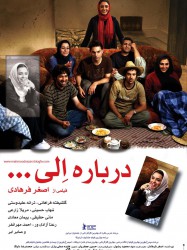
About Elly (2009)
, 1h59Directed by Asghar Farhadi
Origin Iran
Genres Drama
Actors Golshifteh Farahani, Taraneh Allidousti, Shahab Hosseini, Mani Haghighi, Merila Zarei, Peymân Maâdi
A group of middle-class Iranian friends travels to the shores of the Caspian Sea on a three-day vacation. They are former classmates at the law faculty of the university. There are three couples: Sepideh and her husband Amir, who have a young daughter; Shohreh and her husband Peyman, who have two young children, including a son, Arash; and Lastly, Nazy and her husband Manuchehr. The trip is planned by Sepideh, who brings along her daughter's kindergarten teacher, Elly, in order to introduce her to Ahmad, a divorced friend, visiting from Germany.
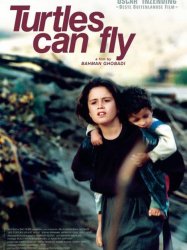
Turtles Can Fly (2005)
, 1h35Directed by Bahman Ghobadi
Origin Iran
Genres Drama, War, Historical
Themes French war films, Films about children, Films about suicide, Political films
The film is set in the Kurdish refugee camp on the Iraqi-Turkish border on the eve of the US invasion of Iraq. Thirteen-year-old Satellite (Soran Ebrahim) is known for his installation of dishes and antennae (for local villages who are looking for news of Saddam Hussein) and for his limited knowledge of English. He is the dynamic, but manipulative leader of the children, organizing the dangerous but necessary sweeping and clearing of the minefields. Many of these children are injured one way or the other, yet still maintain a boisterous prattle whenever possible, devoted to their work in spite of the vagaries of their life.
 , 2h58
, 2h58Directed by Majid Majidi
Origin Iran
Genres Drama, Biography, Historical
Themes Films set in Africa, Films about religion, Films about Islam
Actors Mahdi Pakdel, Amin Tarokh, Sareh Bayat, Rana Azadivar, Dariush Farhang
Le récit se déroule au cours du vie siècle et tourne autour du prophète de l'islam Muhammad, de sa naissance à l'âge de 13 ans.
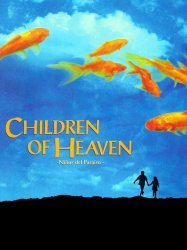
Children of Heaven (1997)
, 1h29Directed by Majid Majidi
Origin Iran
Genres Drama, Comedy
Themes Children's films
Actors Reza Naji, Christopher Maleki
The film starts with Ali (Amir Farrokh Hashemian) fetching his little sister Zahra's (Bahare Seddiqi), pink shoes after a cobbler has repaired them. He leaves them unattended to buy some potatoes. While he is pre-occupied, a homeless man picks up the shoes, hidden in a bag, thinking it was garbage and takes them away. Frantic to find them, the young boy thinking the shoes fell behind the crates knocks over plates of vegetables and is chased away by the grocer.

Taxi (2015)
, 1h22Directed by Jafar Panahi
Origin Iran
Genres Documentary
Themes Prison films, Transport films, Films about the labor movement, Films about automobiles, Films about capital punishment, Road movies
Actors Jafar Panahi
Le réalisateur Jafar Panahi, se faisant passer pour un chauffeur du nom d'Aghayé Panahi (en persan : آقای پناهی, Mr. Panahi) se trouve au volant d’un taxi partagé dans la capitale iranienne de Téhéran dans lequel il a installé une caméra. Cette caméra filme une succession d’archétypes iraniens variés qui prennent tous place à bord du taxi, les personnages étant plus ou moins conscients du stratagème orchestré par le cinéaste. Hommes ou femmes, jeunes ou vieux, riches ou pauvres, traditionalistes ou modernistes, aussi bien vendeur de vidéos pirates que défenseur des droits de l'homme, tous se retrouvent tour à tour dans le véhicule. Chaque personnage propose un portrait iranien spécifique et est également porteur d’un thème de société. Le film se termine par le vol de la caméra du taxi.
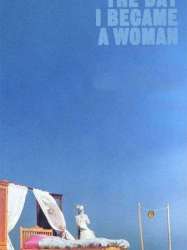
The Day I Became a Woman (2000)
, 1h18Directed by Marzieh Meshkini
Origin Iran
Genres Drama, Comedy
The film tells three different stories about women struggling for identity in Iran.
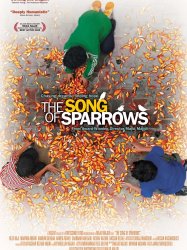
The Song of Sparrows (2008)
Directed by Majid Majidi
Origin Iran
Genres Drama
Themes Films about animals, Films about birds
Actors Reza Naji
Karim works at an ostrich farm outside of Tehran, Iran. He leads a simple and contented life in his small house with his wife Narges, and three children, whom he loves and tries to make happy.
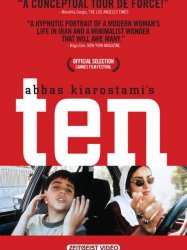
Ten (2002)
, 1h34Directed by Abbas Kiarostami
Origin Iran
Genres Drama
Themes Feminist films, Films about religion, Films about sexuality, Transport films, Erotic films, Films about prostitution, Films about automobiles, Films about Islam, Road movies
The film is divided into ten scenes, each of which depict a conversation between an unchanging female driver (played by Mania Akbari) and a variety of passengers as she drives around Tehran. Her passengers include her young son (played by Akbari's real life son, Amin Maher), her sister, a bride, a prostitute, and a woman on her way to prayer. One of the major plots during the film is the driver's divorce from her (barely seen) husband, and the conflict that this causes between mother and son.
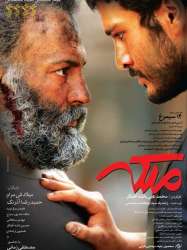
The Queen (2012)
, 1h31Origin Iran
Genres Drama, War, Action
Actors Mostafa Zamani, Homayoun Ershadi
During the war between Iran and Iraq, a scout (Milad Keymaram), in the Abadan Oil Refinery, tries to reveal geographical coordinates of Iraqi soldiers' ambushes for Iranian army forces to kill them easily by bombardments. Meanwhile, he confronts with the soul of the previous killed scout (Mostafa Zamani) who did the same which makes a challenge for him, between his own human deep feelings and killing innocent people of enemy ...
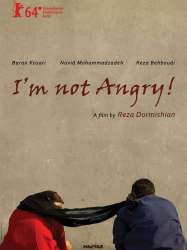
I'm Not Angry! (2014)
, 1h50Directed by Reza Dormishian
Origin Iran
Genres Drama
Actors Baran Kosari
I’m not angry! is the story of Navid, a starred and expelled university student who - while trying to provide the least requirements of a normal life -, tries not to get angry when he is faced with the immoralities prevalent in the society, and does all he can not to lose his love, Setareh.
 Connection
Connection
